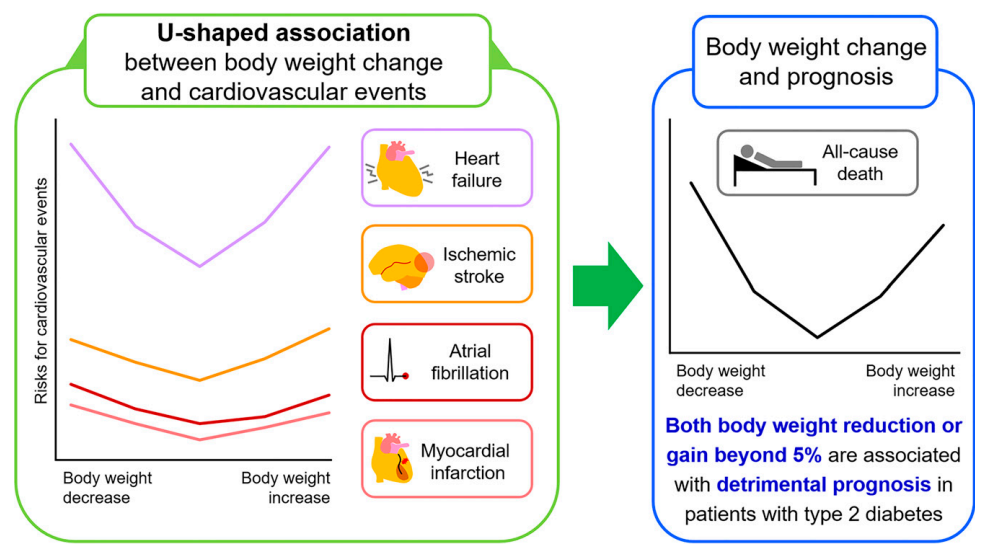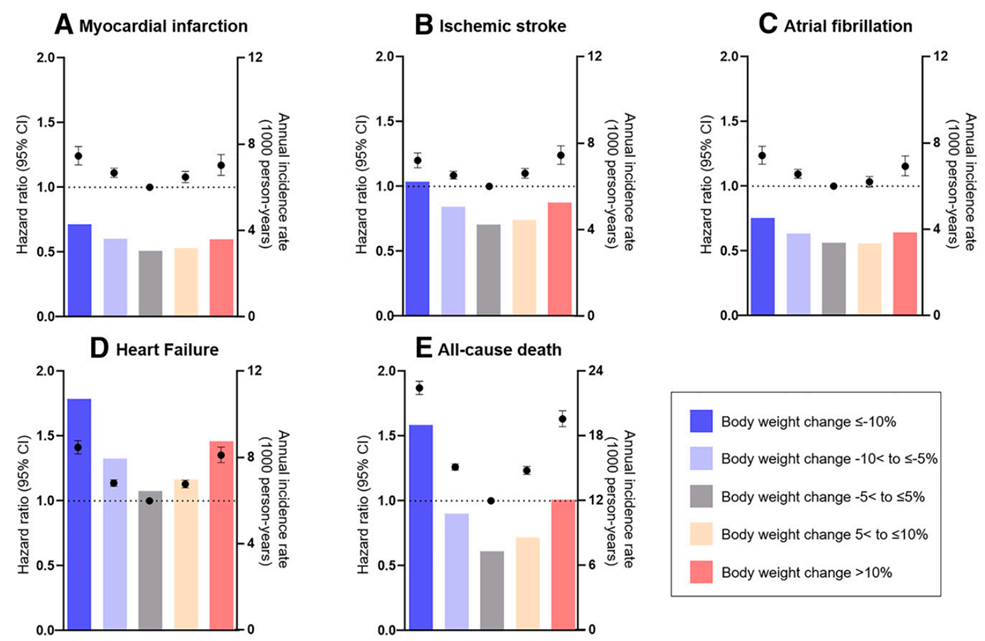Diabetic patients with severe weight change are at higher risk of cardiovascular disease
- Seoul National University Hospital’s joint research team announced the results of analysis of a cohort of 1.5 million diabetic patients
- Increased risk of cardiovascular disease and death if you gain or lose more than 5% of your weight in 2 years

[Figure] U-shaped associations between body weight change and major cardiovascular events were consistently observed in diabetic patients. (From the publication)
Our clinic that recommended weight loss for diabetic patients has now discovered new findings. A study found that diabetes patients who gain or lose more than 5% in body weight are more likely to develop cardiovascular disease.
On the 7th of April, the team of Professor Kim Hyung-Kwan (Dr Park Chan Soon) of Seoul National University Hospital and Professor Han Kyung-Do of Soongsil University presented the results of a cohort analysis: a study on the relationship between weight change and cardiovascular disease in 1,522,241 diabetic patients who underwent 2 comprehensive health check-ups between 2009 and 2012.
According to recent data from the Korean Diabetes Association, the prevalence of diabetes in Korea is 13.8%. About 1 in 7 adults over the age of 30 are diabetic. Compared to the general population, diabetics are more prone to cardiovascular diseases such as myocardial infarctions and strokes and have a higher mortality rate.
In particular, being obese can increase blood cholesterol levels, blood sugar levels, and blood pressure, which are major risk factors for cardiovascular disease. Therefore, under the existing medical guidelines, weight loss was recommended for obese diabetic patients.
However, it has not yet been proven what extent of weight loss is appropriate or whether weight loss really helps prevent cardiovascular disease. Therefore, it was necessary to study the effects of weight gain and loss on the prognosis of diabetes in patients.
The research team measured the weight change of 1,522,241 diabetic patients using data from the National Health Insurance Corporation. Patients were divided into ▲10% or more weight loss ▲5%~10% weight loss ▲stable weight (less than 5% gain or loss) ▲5%~10% weight gain ▲10% or more weight gain. Occurrences of myocardial infarction, stroke, atrial fibrillation, heart failure, and death was followed for about 7 years.

